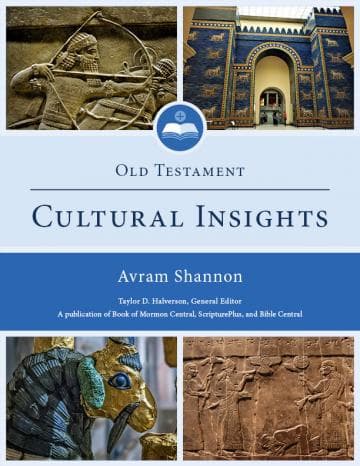Book
71 Chapters

In the King James Version of the Old Testament, Syria refers to Aram, a series of kingdoms and city-states to the immediate north of the Holy Land. The name Syria comes through ancient Greek and derives from an ancient confusion with Assyria, modern-day Iraq. Because of Syria’s proximity to the Holy Land, there are a number of important Arameans (Syrians) in the Old Testament. Abraham’s steward and heir before the birth of Ishmael and Isaac was from the Aramean city of Damascus (Genesis 15:2). Laban, Rebekah’s brother and the father of Rachel and Leah, is described as Laban the Aramean (Genesis 25:20). David fought with the Arameans when he was establishing his kingdom (2 Samuel 8:5–6; 10). Intriguingly, Elijah anointed Hazael to be king of Aram (1 Kings 19:15). Naaman, who was healed from leprosy by Elisha, was an officer in the Aramean army (2 Kings 5:1). In fact, Aram is especially prominent in the stories around the time of Elisha’s ministry. In the days of Isaiah, the Aramaean king Rezin entered into a conspiracy with Pekah, the king of Israel, to overthrow Ahaz, king of Judah (2 Kings 15:36–38). This conspiracy is the immediate context for Isaiah’s Immanuel prophecy (Isaiah 7:1–8). The language Aramaic, to which Hebrew is closely related, originated in Aram.
Genesis 15:2
Genesis 25:20
Genesis 26:20–24
2 Samuel 8:5–6
2 Samuel 10
1 Kings 19:15
1 Kings 20:1–29
2 Kings 5:1–20
2 Kings 6:8–11
2 Kings 7:1–16
2 Kings 8:7–15
2 Kings 9:14–15
2 Kings 12:17–18
2 Kings 13:17–19
2 Kings 15:37
2 Kings 16:5
Isaiah 7:1–8
Book
71 Chapters
Items in the BMC Archive are made publicly available for non-commercial, private use. Inclusion within the BMC Archive does not imply endorsement. Items do not represent the official views of The Church of Jesus Christ of Latter-day Saints or of Book of Mormon Central.